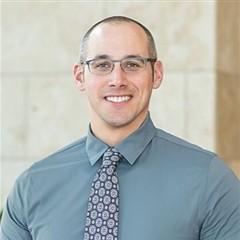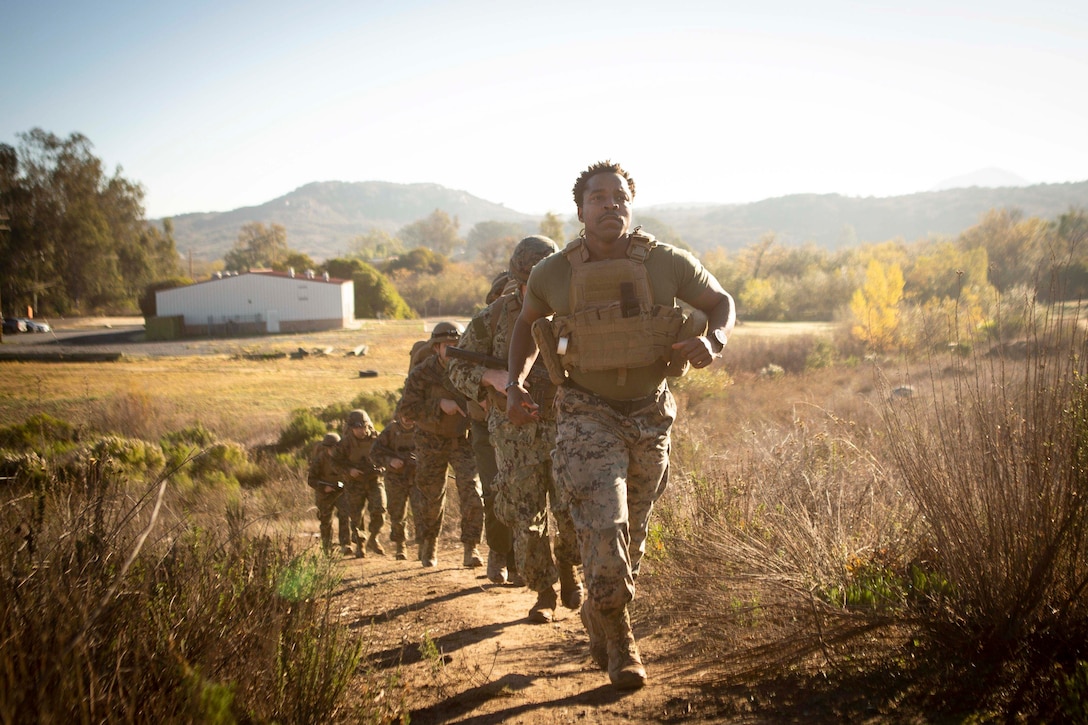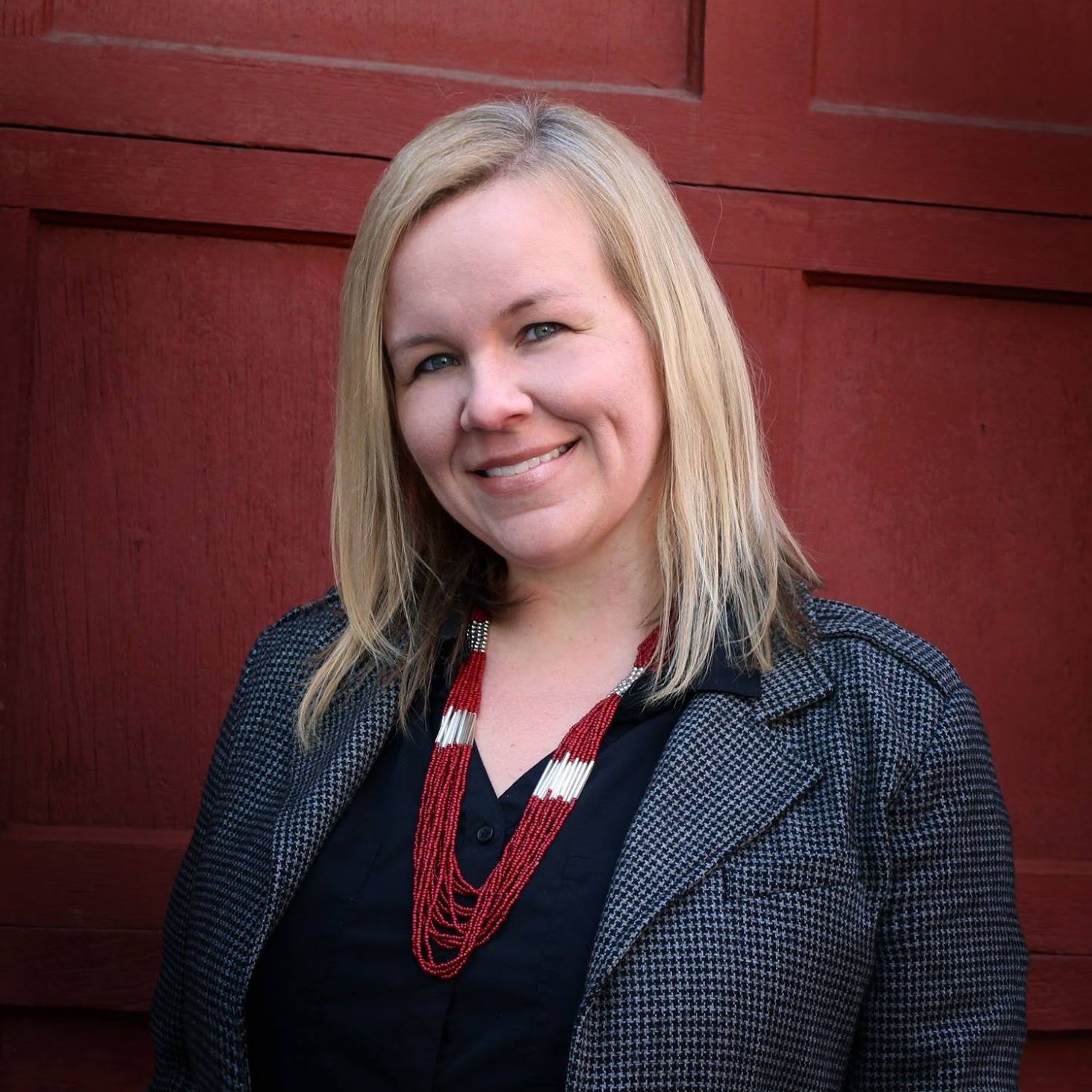20 January 2022
MIRROR – 2021 Year in Review
An interview with Geneva Principal Investigator Brad Isaacson, PhD, MBA, MSF, PMP and Senior Program Manager Linzie Wagner, PMP, CRA on musculoskeletal injury research accomplishments in 2021.
COVID-19 didn’t just alter everyday life in 2021; it also upended military medical research initiatives, including critical research for musculoskeletal injuries (MSI) which affects 800,000 U.S. service members annually. As military installations, academia, and industry partners across the country went virtual, research teams for the Musculoskeletal Injury Rehabilitation Research for Operational Readiness (MIRROR) embraced the theme of resiliency to advance MSI research for the Department of Defense (DoD).

MIRROR, led by Uniformed Services University (USU) Principal Investigators Paul Pasquina, MD, Jenny Yuan, MD, PhD, and Nelson Hager, MD in partnership with Geneva, was funded by the Defense Health Program in 2019 to improve the DoD’s rehabilitative approach in caring for service members with MSI. With more than 40 clinically relevant MSI studies in MIRROR’s portfolio, the goal is to ultimately improve readiness and resilience in the military.
The term “resilience” would prove to have additional meaning in 2021.
MIRROR’s Chief of Research and Operations and Geneva Principal Investigator Dr. Brad Isaacson said, “We have been asked to conduct research for a very specialized and deserving group of individuals, in a time that has been the most challenging to ever be on base.”
Driving knowledge-based research during the pandemic
With the assistance of Geneva’s philanthropy program, MIRROR purchased COVID-19 test kits to keep patient-participants and clinicians safe while conducting clinical trials – successfully recruiting nearly 3,000 subjects to date.
In 2020, MIRROR created 11 post-operative rehabilitation protocols to help clinicians across the tri-service standardize care and in 2021, the team released another seven.
“We are still looking at how we can advance research and clinical care, while engaging in a safe and meaningful way,” said Dr. Isaacson. “Driving key knowledge products across the finish line has been the focus for us during a time when everything has fundamentally changed.”
MIRROR has remained steadfast in its commitment to share knowledge within the Military Health System. The team provided training on several promising initiatives including the Sonex UltraGuideCTR device for carpal tunnel release, Lipogems system, battlefield acupuncture, and Game Ready device for military members. Lipogems is currently being used as a standard of care in the military for patients suffering from knee injuries.
Trailblazing rehabilitative medical research
MIRROR is also focused on standardizing rehabilitative medical research. “Thanks to Whitley Lucio, MIRROR’s Senior Regulatory Affairs and Data Manager, multiple institutional review boards have acknowledged our protocol submissions as the gold standard at several sites,” said Dr. Isaacson.

Geneva Senior Program Manager Linzie Wagner, PMP, CRA, who administers MIRROR’s research, added, “COVID research took absolute priority in 2021. Our team’s ability to activate many clinical trials in 2021 through streamlined regulatory pathways is indicative of the expertise of our regulatory team.”
MIRROR created a dashboard of recruitment data available in real-time to make informed research decisions. “Our strong belief is if you do not know what is happening at your local site, it’s hard to identify and grow efficiently,” added Dr. Isaacson. “MIRROR wants to be good fiduciary stewards of the funds entrusted to us, while also remaining agile and open to opportunities— so our ability to use key process indicators and standardize regulatory activities is very valuable.”
New partnerships to advance care
The scale and spread of MIRROR is unique with research being conducted at 26 military treatment facilities and civilian organizations – and growing.
Emerging evidence suggests that photomedicine, or the application of light with respect to health and disease, has the potential to enhance performance, stimulate healing, and modulate recovery and health. Under a new photomedicine research program announced in 2021 in partnership with USU, Spaulding Rehabilitation, Litecure (now DJO), The Wellman Center for Photomedicine at Massachusetts General Hospital, and The Henry Jackson Foundation, MIRROR is conducting nine research projects using light therapy to help with everything from audiology, to musculoskeletal injuries, to infection prevention.
“There is a lot of promising work from the Wellman Center that demonstrates significant benefit to light therapy,” said Dr. Isaacson. “Several of our studies within light therapy are in the pre-clinical phase with others transitioning to clinical trials in the not so distant future.”
Another key collaboration is with the University of Miami and Veterans Administration (VA) who are redesigning body sensor technology and research used for gait and walking patterns under the Mobile Device Outcomes-based Rehabilitation Program to evaluate anterior cruciate ligament (ACL) injuries. “The previous work received national attention and was recognized by National Public Radio (NPR) and the Smithsonian,” said Dr. Isaacson. “We are getting really close to being able to use this highly received research to help people with debilitating and critical knee injuries.”
MSI – a problem that isn’t going anywhere
MSIs are a major public health problem globally, contributing to a large burden of disability and suffering worldwide. For the U.S. military, it is the leading cause of limited duty days, resulting in more than 25 million days lost.
“What I am most proud of is the resilience of all our researchers, the individuals delivering care, and the patients we have engaged with who are willing to participate,” said Dr. Isaacson.
“The patient being at the table is so critical. Research with end users provides input for device development in real-time which is invaluable,” added Ms. Wagner.
Dr. Isaacson further concluded: “It’s been quite a challenge this past year – and the focus is on health and safety as it should be, but the wheels of research do not stop, and musculoskeletal injuries are still a problem.” He said, “Our team has adapted to the new world order and come up with creative and meaningful solutions to help our military service members and civilians.”
Other 2021 Geneva MIRROR Highlights:
Learn more about Project 5 – Non-Surgical Treatments for CECS, Project 7 – Body Worn Sensors, and Project 9 – Evaluation of Video Telehealth Versus Standard Gait Retraining.

"Driving key knowledge products across the finish line has been the focus for us during a time when everything has fundamentally changed."
Dr. Brad Isaacson
HIGHLIGHTS
- Research teams for the Musculoskeletal Injury Rehabilitation Research for Operational Readiness (MIRROR) program embraced the theme of resiliency to advance musculoskeletal injury (MSI) research in 2021.
- MIRROR remained steadfast in its commitment to share knowledge within the Military Health System, providing training on promising initiatives and delivering seven new protocols for a total of 18.
- MIRROR created a dashboard of recruitment data available in real-time to make informed research decisions and recruited nearly 3,000 subjects.
- The team’s ability to activate many clinical trials in 2021 through streamlined regulatory pathways is indicative of the expertise of the regulatory team.
- The scale and spread of MIRROR is unique. Several new promising collaborations were added this year including a new photomedicine research program and Mobile Device Outcomes-based Rehabilitation Program to evaluate ACL injuries.


